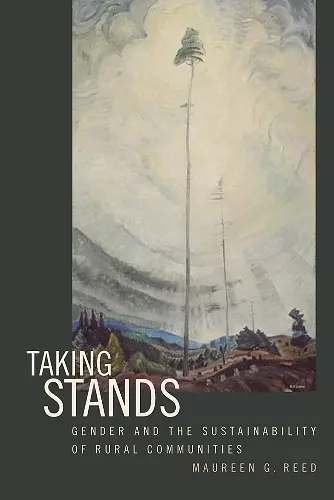Taking Stands
Gender and the Sustainability of Rural Communities
Format:Hardback
Publisher:University of British Columbia Press
Published:1st May '03
Currently unavailable, and unfortunately no date known when it will be back

A powerful and challenging book, Taking Stands provides a crucial understanding of community change in resource-dependent regions, tackling the complexities of gender and activism.
Goes beyond the dichotomies of “pro” and “anti” environmentalism to tell the stories of the women who seek to maintain resource use in rural places.
Environmental activism in rural places frequently pits residentswhose livelihood depends on resource extraction against those who seekto protect natural spaces and species. While many studies have focusedon women who seek to protect the natural environment, few have exploredthe perspectives of women who seek to maintain resource use.
This book goes beyond the dichotomies of "pro" and"anti" environmentalism to tell the stories of these women.Maureen Reed uses participatory action research to explain theexperiences of women who seek to protect forestry as an industry, alivelihood, a community, and a culture. She links their experiences topolicy making by considering the effects of environmental policychanges on the social dynamics of workplaces, households, andcommunities in forestry towns of British Columbia’s temperaterainforest. The result is a critical commentary about the socialdimensions of sustainability in rural communities.
A powerful and challenging book, Taking Stands provides acrucial understanding of community change in resource-dependentregions, and helps us to better tackle the complexities of gender andactivism as they relate to rural sustainability. Social andenvironmental geographers, feminist scholars, and those engaged inrural studies, environmental sustainability, community planning, andpolicy making will find it invaluable.
Maureen Reed has created a significant and sophisticated study that will establish a benchmark not only in how we understand and engage with community change and debate in resource-dependent regions, but also in how we conceptualize gender, women, and activism in those debates. -- Greg Halseth, Canada Research Chair in Rural and Small Town Studies, Geography, University of Northern British Columbia
An excellent handling of a complex and highly controversial topic ... It will make its mark on the world stage, inform feminist and environmental activism and theory, and help Canadians make sense of our poorly understood and badly maligned forestry sector. -- Karen Krug * Alternatives, 29:4, Fall 2003 *
- Winner of K.D. Srivastava Award, UBC Press 2004 (Canada)
ISBN: 9780774810173
Dimensions: unknown
Weight: 560g
296 pages